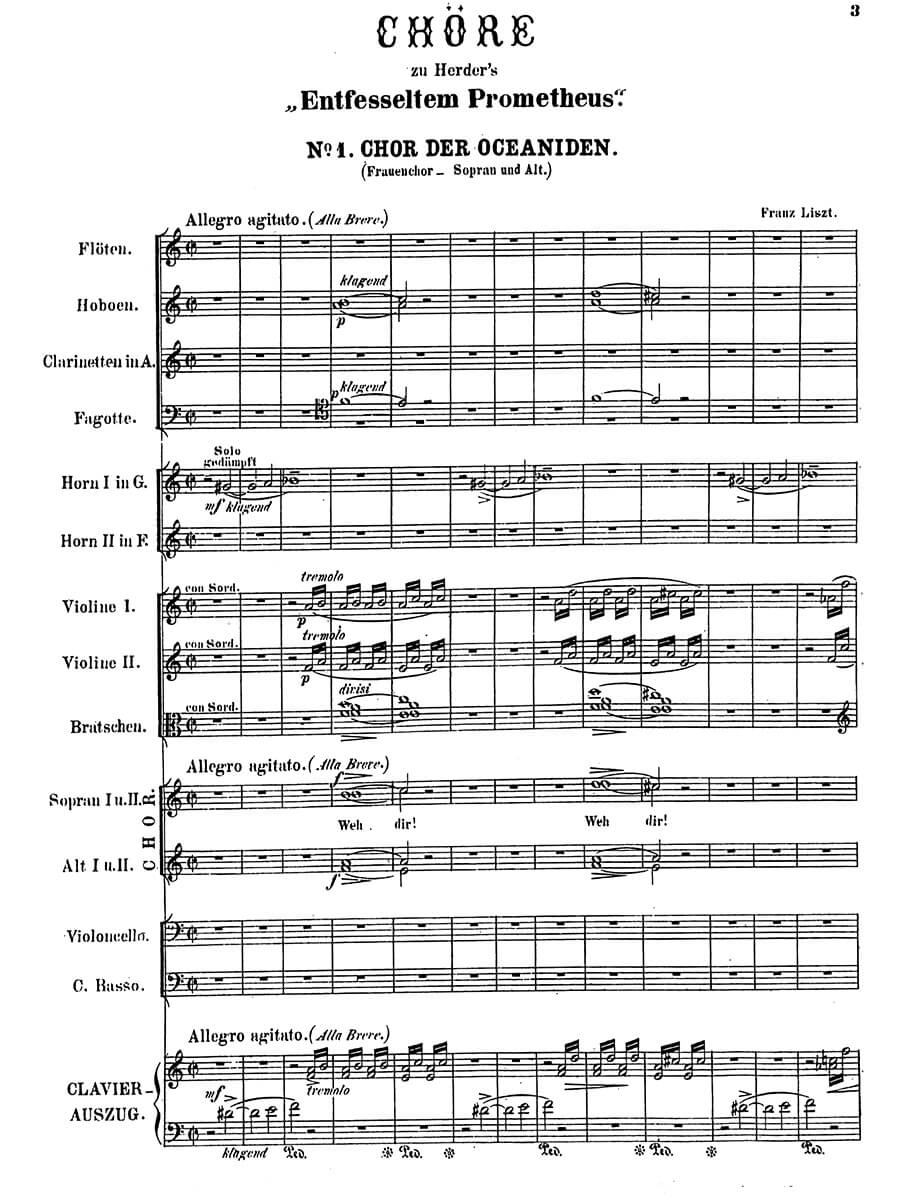Chöre zu Herders ‘Entfesseltem Prometheus’ (with German text / incl. piano reduction)
Liszt, Franz
42,00 €
Franz Liszt – Chöre zu Herders “Entfesseltem Prometheus”
(b. Raiding, (Doborján), 22 October 1811– d. Bayreuth, 31 July 1886)
No. 1. Chor der Oceaniden p.3
No. 2. Chor der Tritonen p.18
No. 3. Chor der Dryaden p.56
No. 4. Chor der Schnitter p.70
No. 5 Chor der Winzer p.103
No. 6. Chor der Unterirdischen p.133
No. 7. Chor der Unsichtbaren p.150
Preface
On August 24, 1850, a performance of the play “Prometheus Unbound” (“Der entfesselte Prometheus”) by Johann Gottfried Herder took place at the Hoftheater in Weimar. It consisted of a set of 13 mythological scenes which were staged with costumes, scenery, and limited stage actioNo. Franz Liszt, who was Kapellmeister at the time, composed the incidental music for the play.
Liszt had been working at the Weimar court since 1948, where he stayed until his resignation in 1860. The composer had held his first concert for the ducal court in 1841 and the following year was appointed “conductor in extraordinary service”, with the obligation to spend three months each year in Weimar as the court conductor. This obligation was fulfilled only in 1844 and 1846. In 1848, Liszt decided to settle permanently in Weimar as court Kapellmeister and abandon his career as a virtuoso pianist.
His patron, Grand Duke Karl Alexander, aimed to restore the city to its cultural status during the Enlightenment, when it was home to intellectuals such as Goethe, Schiller, Wieland and Herder. In 1849, Weimar celebrated the centenary of Goethe’s birth, which lead to great celebrations. Liszt composed a solemn march for a civic procession and an overture for the play “Torquato Tasso”. The following year another festival was organized to pay tribute to Herder’s philosophical and literary importance. On the occasion of the inauguration of a statue by Ludwig Schaller dedicated to the author, “Prometheus Unbound” was staged.
Johann Gottfried Herder (Mohrungen 1744 – Weimar 1803) was a prominent figure in German philosophy in the late 18th century. His thinking highlighted a profound analogy between nature and history: just as nature is characterized by living forms evolving from the simple to the complex, history is characterized by the realization of humanity in increasingly complete forms. The most perfect form that history reaches is “Humanität”, where language, art, religion, freedom, and reason are the specific forms in which humanity manifests itself. …
read more / weiterlesen … > HERE
| Score Number | 4867 |
|---|---|
| Edition | Repertoire Explorer |
| Genre | Choir/Voice & Orchestra |
| Pages | 182 |
| Size | 210 x 297 mm |
| Printing | Reprint |
